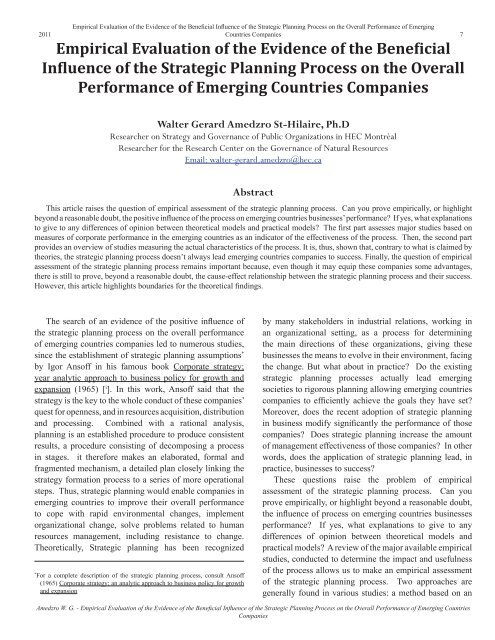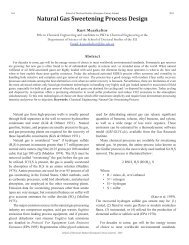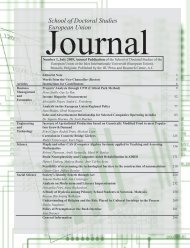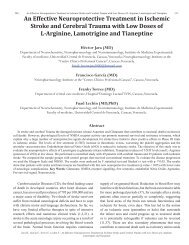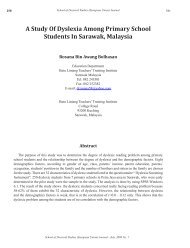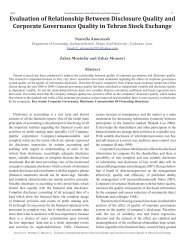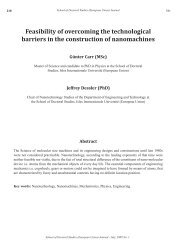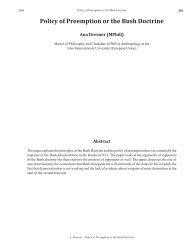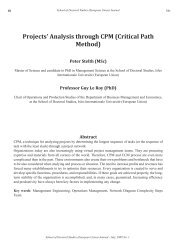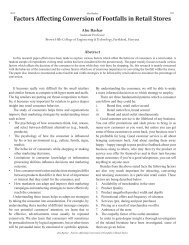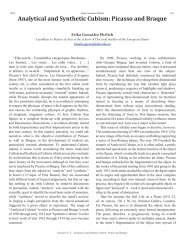Iiuedu.eu
Iiuedu.eu
Iiuedu.eu
You also want an ePaper? Increase the reach of your titles
YUMPU automatically turns print PDFs into web optimized ePapers that Google loves.
Empirical Evaluation of the Evidence of the Beneficial Influence of the Strategic Planning Process on the Overall Performance of Emerging2011 Countries Companies7Empirical Evaluation of the Evidence of the BeneficialInfluence of the Strategic Planning Process on the OverallPerformance of Emerging Countries CompaniesWalter Gerard Amedzro St-Hilaire, Ph.DResearcher on Strategy and Governance of Public Organizations in HEC MontréalResearcher for the Research Center on the Governance of Natural ResourcesEmail: walter-gerard.amedzro@hec.caAbstractThis article raises the question of empirical assessment of the strategic planning process. Can you prove empirically, or highlightbeyond a reasonable doubt, the positive influence of the process on emerging countries businesses’ performance? If yes, what explanationsto give to any differences of opinion between theoretical models and practical models? The first part assesses major studies based onmeasures of corporate performance in the emerging countries as an indicator of the effectiveness of the process. Then, the second partprovides an overview of studies measuring the actual characteristics of the process. It is, thus, shown that, contrary to what is claimed bytheories, the strategic planning process doesn’t always lead emerging countries companies to success. Finally, the question of empiricalassessment of the strategic planning process remains important because, even though it may equip these companies some advantages,there is still to prove, beyond a reasonable doubt, the cause-effect relationship between the strategic planning process and their success.However, this article highlights boundaries for the theoretical findings.The search of an evidence of the positive influence ofthe strategic planning process on the overall performanceof emerging countries companies led to numerous studies,since the establishment of strategic planning assumptions *by Igor Ansoff in his famous book Corporate strategy;year analytic approach to business policy for growth andexpansion (1965) [ i ]. In this work, Ansoff said that thestrategy is the key to the whole conduct of these companies’quest for openness, and in resources acquisition, distributionand processing. Combined with a rational analysis,planning is an established procedure to produce consistentresults, a procedure consisting of decomposing a processin stages. it therefore makes an elaborated, formal andfragmented mechanism, a detailed plan closely linking thestrategy formation process to a series of more operationalsteps. Thus, strategic planning would enable companies inemerging countries to improve their overall performanceto cope with rapid environmental changes, implementorganizational change, solve problems related to humanresources management, including resistance to change.Theoretically, Strategic planning has been recognized*For a complete description of the strategic planning process, consult Ansoff(1965) Corporate strategy; an analytic approach to business policy for growthand expansionby many stakeholders in industrial relations, working inan organizational setting, as a process for determiningthe main directions of these organizations, giving thesebusinesses the means to evolve in their environment, facingthe change. But what about in practice? Do the existingstrategic planning processes actually lead emergingsocieties to rigorous planning allowing emerging countriescompanies to efficiently achieve the goals they have set?Moreover, does the recent adoption of strategic planningin business modify significantly the performance of thosecompanies? Does strategic planning increase the amountof management effectiveness of those companies? In otherwords, does the application of strategic planning lead, inpractice, businesses to success?These questions raise the problem of empiricalassessment of the strategic planning process. Can youprove empirically, or highlight beyond a reasonable doubt,the influence of process on emerging countries businessesperformance? If yes, what explanations to give to anydifferences of opinion between theoretical models andpractical models? A review of the major available empiricalstudies, conducted to determine the impact and usefulnessof the process allows us to make an empirical assessmentof the strategic planning process. Two approaches aregenerally found in various studies: a method based on anAmedzro W. G. - Empirical Evaluation of the Evidence of the Beneficial Influence of the Strategic Planning Process on the Overall Performance of Emerging CountriesCompanies


